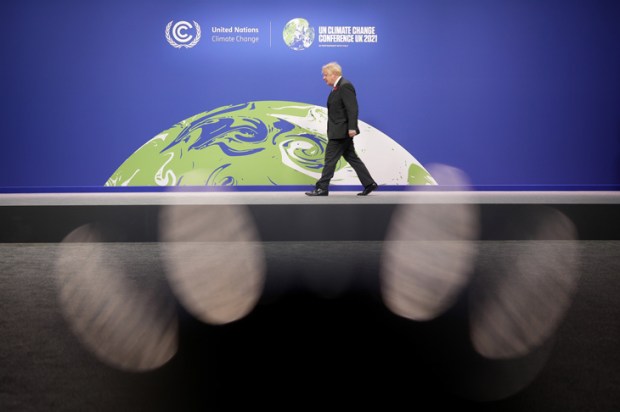The Great Depression was a golden age for sporting heroism, confirming the importance of inspiration in times of adversity. On both sides of the Pacific, in Australia and the US, people took comfort in the achievements of a ball player, a boxer and a racehorse.
The Aussie triumvirate of champions, the rallying point for a young nation out of work and out of luck, was Don Bradman, Ron Richards and Phar Lap. Across the Pacific, it was the Sultan of Swat, Babe Ruth; boxing’s Cinderella Man, James Braddock; and the incomparable Seabiscuit, the modest claimer that charged through the grades to beat War Admiral and become the greatest stakes-winner in the history of American racing.
The Biscuit was trained by a Western Plainsman, Tom Smith, a man a few indulgences and even fewer words. Smith hated social gatherings because people expected him to speak to them. He answered journalists’ questions by turning around and walking away. Once, when asked to describe Seabiscuit at length, he replied, ‘He’s a horse.’
On another occasion, Smith accidentally chopped off his toe with an axe. Witnesses swear he responded by reaching down and methodically shaking the troublesome boot, his amputated flesh falling free. He then paused before turning to the stunned onlookers and speaking just two words: ‘My toe.’
Whenever I see Julia Gillard in interviews lamely muttering ‘My tax’, I think of Smith. She has cut off her credibility by reneging on Labor’s election promise not to introduce a carbon tax. She is helplessly exposed in the public arena and, while no means taciturn, there is little she can say without reminding people of her deceit. In practical terms, her vocabulary is as limited as Smith’s, her puppy-dog eyes pleading with the Australian people to support ‘my tax’.
The ALP has exhausted its political capital on this issue. Unlike the introduction of the GST by the Howard government, it does not have a large parliamentary majority to absorb the public’s angst. Labor missed its chance early last year when Gillard and Wayne Swan advised Kevin Rudd to abandon his ETS and he was silly enough to listen to them. Rudd would have won a double dissolution election in February, the last point at which climate change was a campaignable issue for the government.
Now every time a carbon tax is mentioned in the media, the public mood hardens. While the recent publicity campaign by green groups and celebrities was well-intentioned, it was politically counter-productive. In the citizens’ assembly of public opinion, Gillard’s tax is poison. Labor’s numbers men must be beside themselves, knowing the party is being gutted electorally for a transient policy. As the debate rolls on, it is easily forgotten that this is an interim measure. The government, in time, plans to replace the carbon tax with an emissions trading scheme.
I have no doubt this fiasco will cost Gillard her prime ministership, either at the ballot box or, more likely, at the hands of the factional henchmen. Historians will be left to ponder why, having watered down Labor’s commitment to climate change in the first half of 2010, she decided to commit political suicide from a position of minority government. Julia should blow hard on her candle tonight: it could be her first and last anniversary in the job.
Henceforth the weathervane on her fortunes will be the leathery, stooped figure of Bob Hawke. He has an amazing record on the leadership of the party. Over the past 40 years he has dudded every Labor leader, bar himself and his protégé Kim Beazley Jnr. When, in conversation with the ALP backbencher Daryl Melham at Canberra airport in May last year, Hawke was caught out bagging Rudd, it was the first public harbinger of Heavie Kevvie’s demise. Never forget Gillard’s role, as Rudd’s deputy, in rolling Beazley in 2006. Hawke hasn’t. When the old fella is next reported in the media white-anting Gillard, it will be time to roll out the tumbrel.
The most regrettable aspect of the climate change debate is the systematic trashing of the scientific community by the political Right. This is the same community which, when it invented the technologies of carbon-based capitalism, was hailed as a force for human enlightenment and civilisation. Now, as they point out, logically and empirically, evidence of the environmental limits of carbon consumption, scientists are being depicted as agents of left-wing alarmism. This is a new low for the neoconservatives, only accepting the word of scientists when a dollar can be made from it.
Marxism has many flaws, but also a handful of valuable insights into political economy. The concept of hegemony is particularly useful. Nothing is more threatening to the ruling order in society than proposals which undermine of the rate of profit. The big corporations and their mouthpieces in the Murdoch media are using every propagandising trick in the book to sully the reputation of environmental scientists.
The sensible minority of Australians who support action on climate change want the big polluters to bear the cost of greenhouse abatement. This is when the capitalist hegemony becomes impenetrable. The possibility of job losses as companies threaten to head offshore is deadly in terms of marginal seat opinion. Those who control the means of production also control the preconditions of economic debate. Parliamentary institutions, in effect, are a subset of ruling class power. What other explanation can there be for the shambolic failure of Western democracy to cope with the environmental emergency of global warming?
The post Latham’s Law appeared first on The Spectator.
Got something to add? Join the discussion and comment below.
Get 10 issues for just $10
Subscribe to The Spectator Australia today for the next 10 magazine issues, plus full online access, for just $10.














Comments
Don't miss out
Join the conversation with other Spectator Australia readers. Subscribe to leave a comment.
SUBSCRIBEAlready a subscriber? Log in